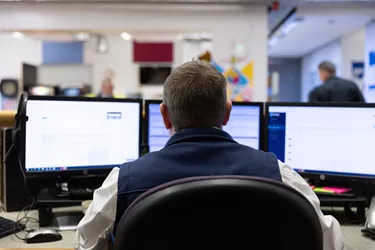Thanks to you, mental health is no longer ‘miscellaneous’!
Leila from our Policy and Campaigns team blogs about how you helped us change the way councils report on their mental health spending.
We did it! In November 2015, over 23,000 of our campaigners and supporters signed our letter to the Minister for Public Health, to say mental health is not ‘miscellaneous’.
And now, thanks to you, the Department of Health no longer asks local councils to classify mental health spending as ‘miscellaneous’.
Miscellaneous?
Before our campaign, public health teams in local councils reported mental health spend under a “Miscellaneous” budget category.
So while other important public health initiatives had their own category, like ‘Smoking’ and ‘Sexual Health’, mental health was in a grouped category along with 14 other things.
What did that mean?
It meant that you couldn’t clearly see just how much was being spent on mental health by local public health teams.
But thanks to our campaign and your signatures, the Minister has stepped in, and mental health now has its own budget category.
Now, when each local council files it’s spending on public health, we can all clearly see just how much has been spent on mental health.
Why is it important?
Before the change, if a public health team did do any work on mental health, classifying it as 'miscellaneous' sent a clear message from the Department of Health that mental health isn't viewed as important as physical health.
It also meant that there was no transparency on how much public health teams were spending on mental health.
We will now be able to clearly see whether public health teams are investing in mental health, and call them to account if they’re not.
How it all works
Each local council receives money from the Department of Health to fund their work on ‘public health’. Public health is about ensuring people have good health and preventing them from developing health problems.
We’ll all be familiar with lots of public health messages – we should eat five portions of fruit and veg a day, we should get regular exercise and we should avoid things such as smoking.
But we know that public health teams haven’t been focusing on ways to look after our mental health or helping us to avoid developing certain types of mental health problems. Our Freedom of Information requests to councils found that, on average, only 1 per cent of council’s public health budgets were spent on mental health in 2014–2015.
This is despite the fact that we know this is really important to people – when we engaged with people ahead of the Mental Health Taskforce, a quarter said we should be prioritising prevention.
What's next?
This new change is particularly important given that public health budgets are being cut. We’re concerned that councils, who are already spending exceedingly little on mental health, will decide to stop funding altogether.
A recent survey of Associate Directors of Public Health found that many public health teams planned to reduce spending on mental health in the next couple of years, and some planned to stop funding this area altogether.

See what we're campaigning on

Information and support
When you’re living with a mental health problem, or supporting someone who is, having access to the right information - about a condition, treatment options, or practical issues - is vital. Visit our information pages to find out more.
Share your story with others
Blogs and stories can show that people with mental health problems are cared about, understood and listened to. We can use it to challenge the status quo and change attitudes.

















